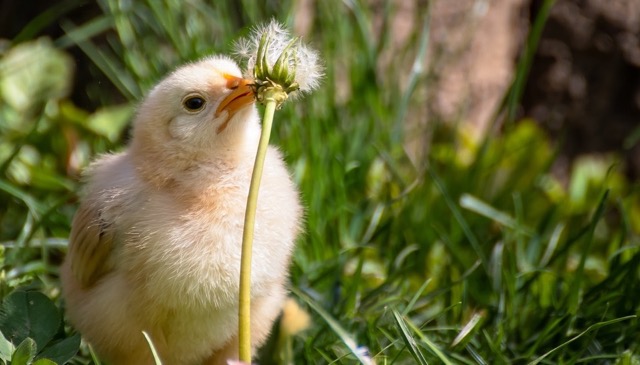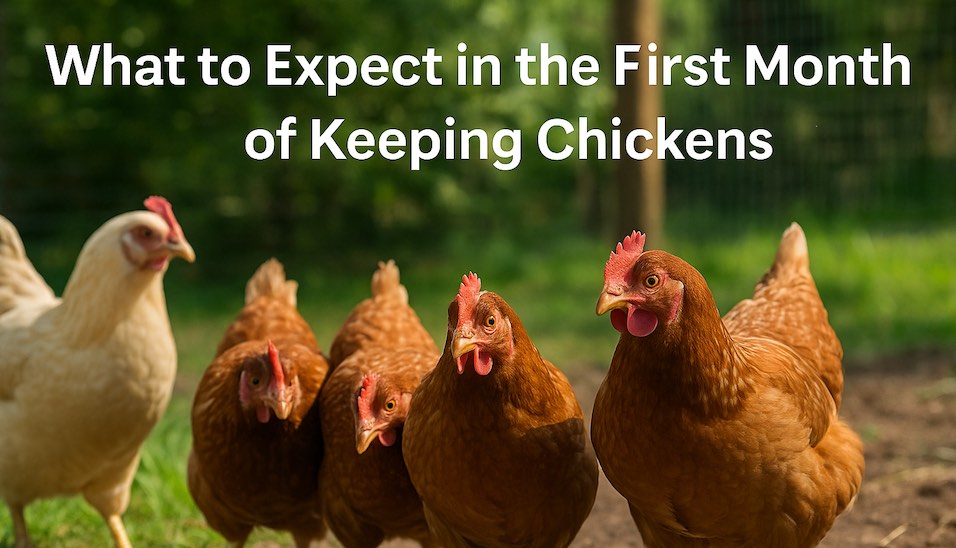Brooder Enrichment for Chicks
Brooder Enhancements for Chicks
Chicken keepers often say that chicks raised by a hen are better foragers than chicks raised in a brooder.
However, a recent scientific review suggests that the brooder environment might be responsible for this difference more than the hen.
So how can you improve your brooder and add some enrichment for baby chicks?
Explore these easy brooder enhancements, and check out our Premium Australian-Made Chick Brooder for a top-notch start.
What are the benefits of raising chicks in a brooder?
If you incubate eggs or buy chicks, then they must be raised in a brooder. There are many benefits to raising chicks in a brooder:
- Protection from predators and adult birds
- Less risk of parasites or disease, as these are usually carried by adult birds
- Easier temperature control
- Medicated feed can be used without risk of it being consumed by laying hens
- More chicks can be raised at once
Understanding chick development – the first few weeks of life
The first few weeks after hatching are essential for chicks. The environment during this time influence a chicken’s health, behaviour and productivity for life.
In the first few weeks, a chick’s brain, bones and muscles are still developing. Providing a range of stimuli and experiences influences how friendly a chicken will be as an adult, along with their susceptibility to stress and their foraging capacity. Activity levels influence future fitness.
It makes sense that we should raise chicks to prepare them for adult life. Yet even backyard brooders are often sterile boxes with little more than food, water, a heat source and floor litter. This suits a commercial laying hen that will spend it’s 2 years on the floor of a large barn, but not a free-range hen that needs to be able to run, fly and forage!
Backyard chickens often spend time with people, and pets. They need to be able to negotiate complex environments and cope with change.
Fortunately, it is easy to enrich the brooder environment to help your chicks develop the skills and temperaments that will help them thrive as adults.
10 easy brooder enhancements for free-range and backyard hens
Think of new chicks like puppies. Time needs to be spent socialising them and exposing them to varied stimuli from hatching. This will help them cope with the varied life of a backyard chicken, where foraging and resilience are keys to thriving!
1. Floor litter
Once chicks are able to reliably recognise food, use a floor litter in the brooder.
Litter encourages foraging behaviour, such as scratching and pecking. Studies have also found that having the opportunity to display these natural behaviours seems to improve the immune response and brain development of chicks, as well as reducing problem feather pecking and fearfulness as an adult.
2. Opportunities to jump, climb and fly
Early exposure to perches reduces the incidence of injuries and fractures in adult hens, and flying opportunities help develop wing bones. Climbing opportunities also develop spatial awareness in chicks, which is very important for free-range hens that have to negotiate complex environments.
Typically, chicks prefer to remain on the ground for the first week of life. After that, ramps, platforms and perches should be introduced gradually and space expanded to allow chicks to flap and fly.
Use soft surfaces to ensure chicks do not injure themselves and increase height gradually. Changing the structures over time also helps chicks become accustomed to change.
3. Pecking opportunities
Chicks will begin to peck at things from day one and it is important to provide them with varied pecking opportunities as part of their development. Provide simple toys, like CDs on strings. But ensure there is nothing chicks can swallow or become tangled in, and avoid food options until chicks are at least a month old. Providing objects to peck can also reduce feather pecking.

4. Simple changes
Chickens are notorious for becoming stressed when things change. And stress is a key contributor to the development of many chicken illnesses.
In a commercial setting, even a person walking through the chicken house in the wrong direction can cause hysteria! While backyard chickens tend to be less stressed, exposing them to simple changes in the brooder is still important.
Studies suggest that mild stress responses are good for chicks’ development and immune response. Exposure to change also prevents them being as fearful as adults, which is particularly important for adapting to a free-range environment.
Introduce new items to the brooder, as well as changes to feeding and cleaning routines and new people. Just take things gently – you are aiming for a mild stress response only!
5. Visual stimuli
Isn’t it funny that most chicks are raised in brooders with solid sides and plain walls? And yet visual stimulus from the day after hatching is important for brain development and pecking behaviour!
While moving images are preferred by the chicks in studies, even a picture or a toy can help. A brooder window is also an option, but you should be careful to ensure there isn’t too much outside the window to stress chicks out, such as friendly pets!
6. Occlusion
What is occlusion? It is basically objects disappearing. Like children, chicks have to learn that things they can’t see are still there!
Early experience with visual occlusion helps chicks find things they can’t see as adults, for example locating the coop after a day out free-ranging! It also improves brain development and spatial awareness.
Even something as simple as an object in the brooder that chicks cannot see around, but can walk around, counts! Or provide a screen, for example between the heat source and feed. Begin when chicks are a few days old and only leave the screen in for a short period initially, to ensure chicks don’t become trapped on one side or the other.
7. Natural light
Like everything else, chicks’ eyes are also developing. Keeping chicks in a dim environment can retard development, while constant bright light can cause feather pecking and stress.
The best approach is to use a Chick Heat Plate, rather than a heat lamp that provides constant light. If you can, keep your brooder in a room with natural light, but avoid direct sunlight for more than 10 or 20 minutes per day.
8. Probiotics
Some studies suggest that the use of probiotics can enhance the immune system and digestion of chicks raised without a mother hen.
Chicks’ guts are colonised with microbiota after hatching. Where chicks have contact with a mother hen, an established microbiota develops in little more than a week. Chicks reared in a commercial environment, on the other hand, can take several years to develop an adult microbiota! A more developed microbiota improves immune function as well digestion.
Providing an avian specific probiotic, like 2 Pak Probiotic, is the best way to help chicks in a brooder develop their microbiota. Exposure to an unrelated chicken is not recommended because adult birds can harm chicks and tend to carry parasites and disease, as well as beneficial gut microbes.
9. Early exposure to the outdoors
For chickens intended as free-rangers, early exposure to the outdoors is recommended. In commercial free-range systems, chicks are often given access to a fenced veranda area after 6 weeks of age. In a backyard setting, you may be able to give your chicks access to grass for a few hours a day in a small coop or chicken tractor. Chicks need access to heat for 4-6 weeks, but on warm days can happily spend time without a heat source, particularly where they have access to sunshine.
10. Handling
If you want your chickens to be friendly, handle them regularly as chicks. Short times at first, and very gently and quietly. This can get them accustomed to handling and humans, reducing stress when you have to handle your adult hens.
Want more?
For more tips on raising healthy, well-adjusted chicks, you might like these other blog articles:
- Best brooder for chicks
- How to make a DIY Brooder
- Incubating Eggs versus Setting a Hen - Which is right for you?
- The Dine a Chook Guide to Feeding Chicks - Day 1 to Adult
- Introducing New Chicks to the Flock
Happy chicken keeping!
Rachael at Dine-A-Chook Australia




